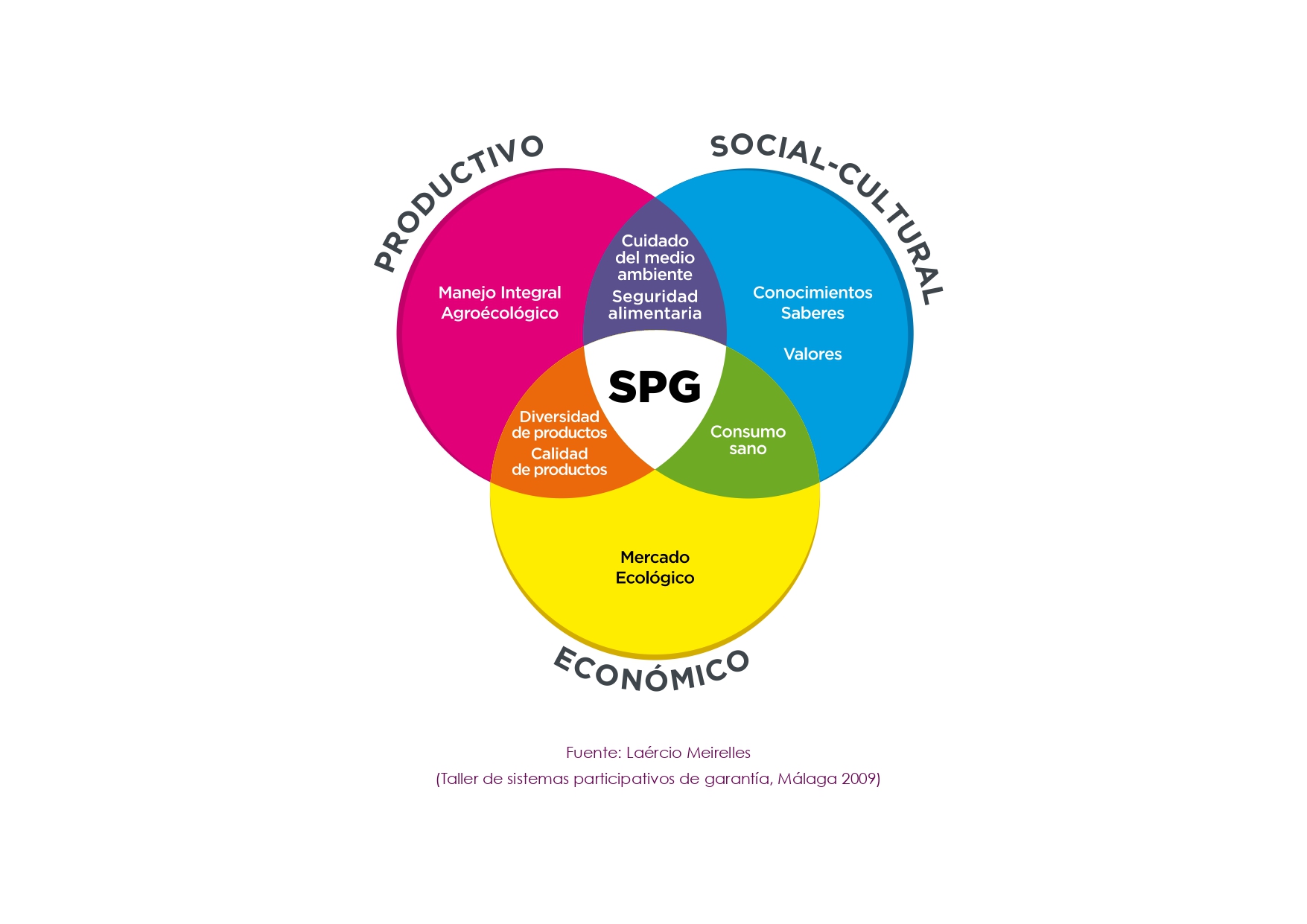Participatory Guarantee Systems can be considered to have a first date of birth during the 70s, when producers begin to identify their organic production (with criteria of respect for the environment) in "informal" ways, of conventional production (many times intensive production, using industrial chemical inputs and other technologies). In 1995 a single standard was introduced in Europe, which stipulates the requirements that all certification bodies must meet. The main element is that certification becomes a process carried out by a third party, outside and independent of the actors of production and consumption. It is the so-called “third party certification” and it is the only certification process that is recognized as valid throughout the European territory. In this way, the participatory certification model established by some of the movements that started it becomes illegal, and the products it endorses cannot be considered organic.
All this is getting more complicated as other criteria and certificates for organic production begin to be implemented in the rest of the territories, which hinders the work of farmers and access to the organic market. Thus, Participatory Guarantee Systems are reinforced as an alternative to "official certifiers".
Starting in the 2000s, the different experiences of SPGs existing in the world began to relate and exchange information on operation, commercialization, etc.
IFOAM (International Federation of Agroecological Movements) carries out a voluntary mapping of these experiences and multiple studies and exchanges in this regard (for more information HERE
GSPs are defined by IFOAM as: “Participatory Guarantee Systems are quality assurance systems that operate at the local level. They certify producers based on the active participation of the actors and are built on trust, social networks and the exchange of knowledge ”.
There are various modalities, depending on the groups that promote them and their objectives. Some are driven by the consuming party, which distributes certified products in an internal network, others are linked in turn with "official" seals, others are driven by the producing party as a space for exchanging good practices and alliance to promote agroecology ...
Concepts common to all are: participation, trust, shared vision, transparency, external peer review, ancestral knowledge.
Info: SISTEMAS PARTICIPATIVOS DE GARANTIA

- Creating networks
- Social movement, social organisation
- Peasant movement, Peasant organisation
